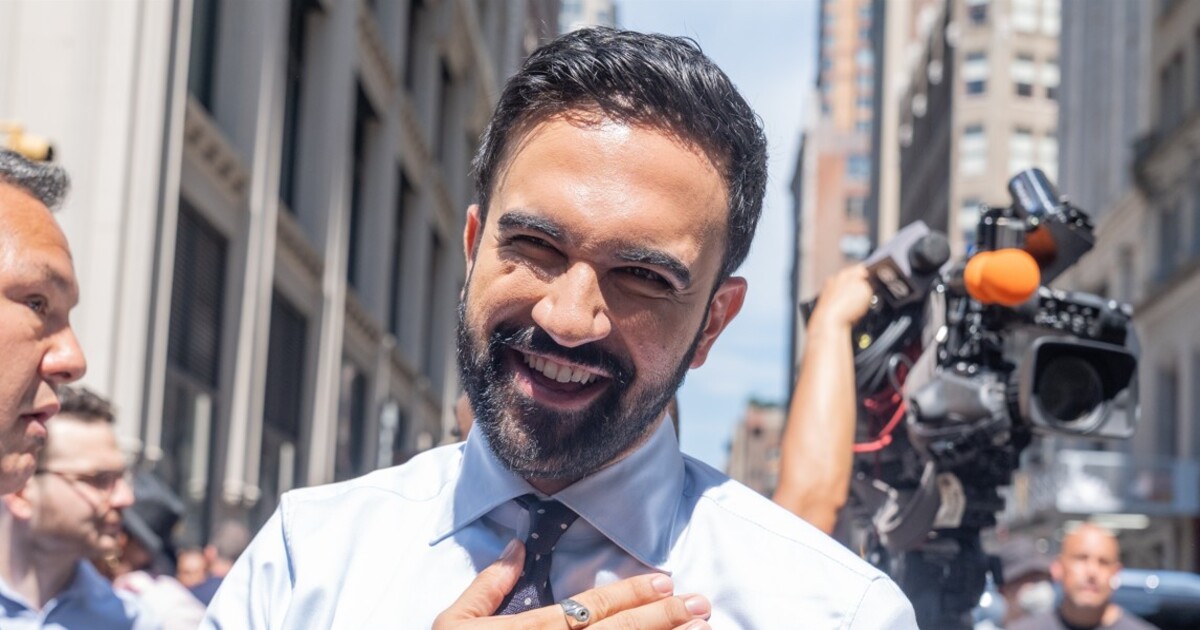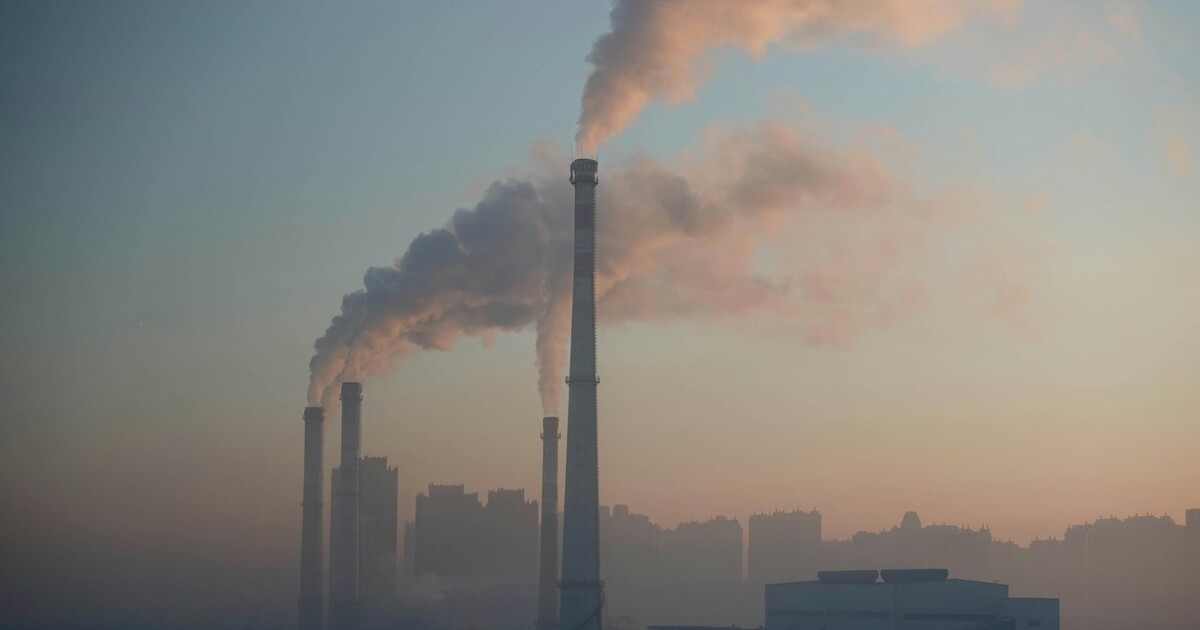Will Zohran Mamdani Be New York’s Next Mayor?
Zohran Mamdani has run a brilliant campaign. The odds that he will become the next mayor of New York are in his favor.
July 4, 2025

A Strategic Assessment Memo (SAM) from the Global Ideas Center
You may quote from this text, provided you mention the name of the author and reference it as a new Strategic Assessment Memo (SAM) published by the Global Ideas Center in Berlin on The Globalist.
Zohran Mamdani, who was an obscure State Assemblyman from Queens eight months ago, has a very good shot at becoming New York City’s next mayor.
True to form, Donald Trump has already called him a communist and is wondering out loud whether the New York mayoral contender is in the country legally.
Mamdani, a Democratic Socialist, would be the city’s first Muslim mayor. At age 33, he would be the youngest mayor since 1914.
A political earthquake
Mamdani’s victory in the Democratic mayoral primary was a political earthquake. New York City voters, particularly younger voters, resoundingly rejected Andrew Cuomo — the candidate backed by the Democratic Party establishment, as well as other moderate politicians.
Cuomo had a huge war chest and endorsements from many prominent Democrats, such as former Mayor Michael Bloomberg. But Mamdani ran an energetic, grassroots campaign, while Cuomo’s was lackluster and mean-spirited.
Mamdani also benefited from the city’s changing demographics. About 20% of New Yorkers are Jewish. However, about 12% of the city’s residents are Muslim — that is a million people — and many of them hail from Southeast Asia.
Mamdani is Indian American and based in Queens, where many South Asian New Yorkers live. He garnered a lot of support from them.
Broad support
Still, Mamdani appealed to a broad swath of voters, including many affluent residents and Latinos. The challenge for Mamdani in the general election will be to increase his support among working-class, black and Jewish voters. Those groups mostly voted for Cuomo.
The business community, especially real estate developers, landlords and some hedge fund managers, has reacted with shock and horror to the prospect of a Democratic Socialist becoming mayor.
Mamdani wants to freeze rents on rent-stabilized apartments for a year and raise taxes on New Yorkers earning more than $1 million a year. These groups are trying to decide whether to back Cuomo or Eric Adams, the current mayor, who both may run as independents in the general election.
His opponents will probably launch a heavily funded, vicious campaign against Mamdani, so there is no guarantee that he will win the general election.
But unless Mamdani commits a major screw-up, he has a good chance of winning. New York remains an overwhelmingly Democratic city, and both Adams and Cuomo carry a lot of baggage.
A gifted politician
When he entered the race for mayor, Mamdani did not seem to have a chance. He had little money and no name recognition. Mamdani was squaring off against Andrew Cuomo, the former three-term governor, Brad Lander, the well-regarded NYC Comptroller and Scott Stringer, a former Comptroller, as well as others.
But unlike his competitors, Mamdani electrified voters, and he built a corps of 50,000 volunteers. Mamdani campaigned tirelessly across the city.
Cuomo stuck to friendly territory — union halls, synagogues and black churches — and did not venture out in public very often. That was a risky approach for a man who had not lived in NYC for decades.
A passionate, eloquent speaker with a ready wit, Mamdani performed well in debates with other candidates and in the media. Mamdani also ran a brilliant campaign on social media — he is handsome and comfortable on camera.
He may also have absorbed some lessons from his mother, a well-known filmmaker. Cuomo relied more on TV ads and campaign fliers.
Young and optimistic
Mamdani came across as young, optimistic and sympathetic to voters’ concerns about the sharp rise in the cost of living in New York. Cuomo, who is twice Mamdani’s age, at 67 years, seemed like a grouchy old man.
His core message was simultaneously grim and entitled: The city is a mess, and I’m the only one who can fix it. Sounds familiar, perhaps? This message may have turned off many voters.
Lander fizzled with voters
Lander, a progressive, was arguably the most qualified candidate in the race. Unlike Mamdani, Lander, 55 years old, has a solid record of accomplishments and a deep knowledge of how the municipal government operates.
Lander has a reputation as a decent and pragmatic politician, despite his progressive views. He lives in Brooklyn and has raised his family there.
Like Mamdani, Lander put forth concrete proposals to help New Yorkers, with ambitious plans to build more affordable housing. But Lander never caught on with voters in the primary. He lacks charisma. Mamdani radiates it.
Lander may have given Mamdani an important boost by agreeing to cross-endorse him in the race. His seal of approval may have helped Mamdani rebuff charges of antisemitism, since Lander is Jewish.
Mamdani could reward Lander and help his own campaign by announcing that if elected, he would appoint Lander to a Deputy Mayor role.
Such a move might reassure voters who worry about Mamdani’s lack of experience in government and management. That step might further refute the baseless claims that Mamdani is antisemitic.
Cuomo’s heavy baggage
During the campaign, Cuomo stressed his extensive experience in office. In fact, the former Governor was very effective. He renovated LaGuardia Airport, finished construction of the Second Avenue subway line and replaced the Tappan Zee Bridge.
But Cuomo was a bully, riding roughshod over local officials who would not obey his commands. Cuomo took pains to humiliate former Mayor Bill de Blasio.
New Yorkers elected Cuomo as Governor three times, but he was not very popular with most voters. They voted for him because he “got things done,” not because they liked him.
When allegations arose that Cuomo had sexually harassed women on his staff, he did not have a reservoir of goodwill to draw upon, either with other politicians or the public. He had to resign in disgrace. Voters had not forgotten that sorry episode.
Although Cuomo was trying to make a comeback in this election, he acted as though he deserved to be mayor. Cuomo did not display any humility, and talked like an angry, tough guy. Cuomo waged a negative campaign, attacking Mamdani for his anti-Israel views.
Radical, popular proposals
Mamdani has proposed sweeping solutions to make the city more affordable:
– Freezing rents on rent-stabilized apartments for a year
– Free bus service
– City-owned grocery stores with lower prices
– Free childcare up to five years old
Where will the money come from?
To fund these programs, Mamdani would impose a stiff increase in the NYC corporate tax rate to 11.5% from 6.5%-7.25%. He would also raise by 2% the personal income tax rate on New Yorkers earning more than $1 million a year.
That would increase their rate to 5.9% from 3.9%. Mamdani would have to obtain the state legislature’s agreement to such increases. Governor Kathy Hochul has said that she would not support tax hikes.
Several of Mamdani’s ideas seem impractical or inadvisable. But they are easy to understand, and they resonated with voters.
Freezing the rent is a crowd-pleaser, but it would not spur the development of more housing. That is what the city really needs. Furthermore, landlords have a legitimate gripe that they face rising costs because of inflation.
Still, Mamdani is proposing a freeze for only one year and only on rent-stabilized apartments, not those with market-based rents. Former Mayor Bill de Blasio froze rents several times, and landlords survived his tenure in office.
Free bus project
The Metropolitan Transportation Authority ran a pilot project with free bus service for a year. Mamdani had lobbied for the project in the State Assembly.
However, disappointed with the results, the MTA scrapped the project. A better approach would be income-based. It would provide subsidies to New Yorkers who can show that paying bus fares is a heavy burden.
Otherwise, Mamdani would be asking New York state taxpayers living outside the city to provide even more subsidies for NYC mass transit. That is a tough sell.
NYC has many “food deserts,” neighborhoods that lack traditional grocery stores. Mamdani’s idea for city-operated grocery stores is intriguing, and other cities are experimenting with the concept. However, implementing this idea in poor NYC neighborhoods could be difficult.
The cost of childcare is a major issue for New Yorkers, as for many Americans. It is not clear that Mamdani could get the additional tax revenue to provide free care for children up to the age of five.
Can Mamdani win the general election?
Mamdani might face both Cuomo and Adams in the general election. Adams has declared that he will run for re-election, and Cuomo has said that he is keeping his options open.
Real estate and financial industry heavyweights may bankroll either or both candidates in their drive to keep a democratic socialist out of office. The election is four months away, and politics is full of surprises. Still, the odds probably favor Mamdani.
As Cuomo has a lot of baggage, why would he perform better in the general election than in the primary? Cuomo had vastly more money and endorsements than Mamdani, but he lost, anyway.
Mayor Eric Adams had good reasons for staying out of the Democratic primary. He probably would have been humiliated. Adams may — may — still have the support of many black voters, but most New Yorkers are disgusted with him.
Only 20% of city residents approved of his performance and 50% wanted him to resign, according to a March poll by Quinnipiac University.
A corrupt incumbent
Adams is an empty suit. He talks a lot, but he has accomplished almost nothing during his time in office. Adams finally unveiled a plan for more affordable housing, recently, but the City Council played a major role in bringing that initiative to life.
Furthermore, Adams has presided over the most corrupt NYC administration in modern times. Many of his senior officials have been indicted, often on corruption charges, or have resigned under pressure.
During the Biden administration, the Department of Justice indicted Adams himself on corruption charges. After Donald Trump became President, Adams lobbied Trump furiously, and the DOJ dropped the charges against him.
In what was widely seen as a craven quid pro quo, Adams agreed to cooperate with ICE, even though NYC is a sanctuary city. The mayor let ICE agents enter the prison on Rikers Island to arrest immigrants, which city officials had not previously permitted.
That step provoked an outcry in the city, where 36% of residents are foreign-born.
Possible steps for Mamdani
To broaden his appeal with voters, Mamdani could:
– Announce that Brad Lander would be a Deputy Mayor
– Reach out more to black voters
– Disavow the term “globalize the intifada” to reassure Jewish voters
So far, Zohran Mamdani has run a brilliant campaign. Let us see if he makes history in November.
Takeaways
Zohran Mamdani, who was an obscure State Assemblyman from Queens eight months ago, has a very good shot at becoming New York City’s next mayor.
Mamdani’s victory in the Democratic mayoral primary was a political earthquake.
The challenge for Mamdani in the general election will be to increase his support among working-class, black and Jewish voters. Those groups mostly voted for Cuomo.
Unless Mamdani commits a major screw-up, he has a good chance of winning. New York remains an overwhelmingly Democratic city, and both Adams and Cuomo carry a lot of baggage.
Mamdani comes across as young, optimistic and sympathetic to voters’ concerns about the sharp rise in the cost of living in New York. Cuomo, who is twice Mamdani’s age, at 67 years, seemed like a grouchy old man.
Several of Mamdani’s ideas seem impractical or inadvisable. But they are easy to understand and they resonated with voters.
The business community, especially real estate developers, landlords and some hedge fund managers, has reacted with shock and horror to the prospect of a Democratic Socialist becoming mayor of New York.
A Strategic Assessment Memo (SAM) from the Global Ideas Center
You may quote from this text, provided you mention the name of the author and reference it as a new Strategic Assessment Memo (SAM) published by the Global Ideas Center in Berlin on The Globalist.


